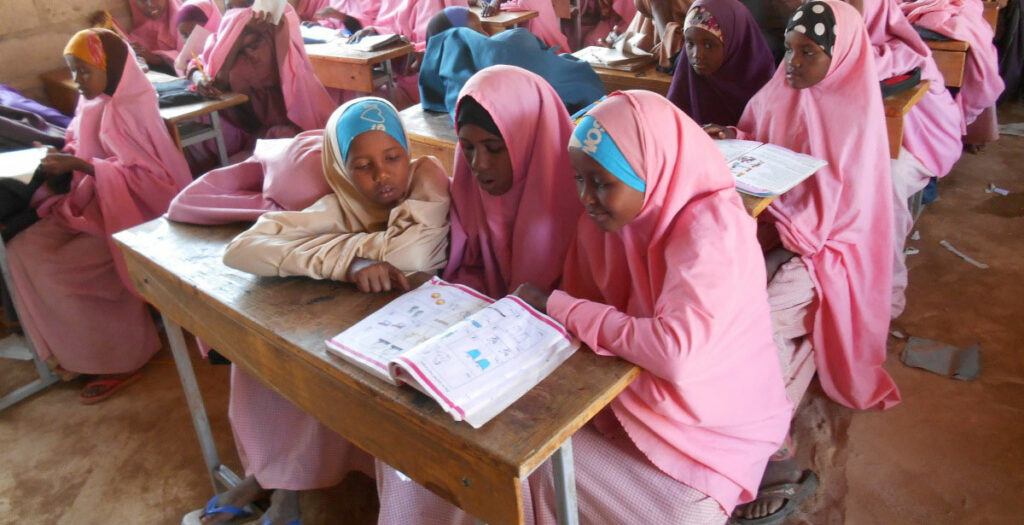Engaging In Development with Richard Rowe
International development is an exciting, thrilling, and unique field. The opportunity to work abroad, immerse in new cultures, and foster new relationships is in part one of the reasons why so many succumb to it. But how do we get there? How can we become successful development practicioners?
This Tuesday, BNID had the opportunity to sit and speak with OLE (Open Learning and Exchange) Executive Director, Richard Rowe who provided his personal insight on the field as well as his experiences that led him to initiate OLE.
Founder and CEO of OLE, Richard Rowe has worked in international development for an extended amount of time. Starting his career in psychology at UCLA as an undergraduate and then at Columbia University for his Ph.D, Rowe is not only an advocate of international development, but a psychologist understanding individual and group behavior. Speaking with Rowe, international development is a lot more than just initiating programs or donating laptops to a developing community, rather it’s more about human engagement.
According to Rowe, he got into international development, “by accident.”
“It was a combination of my upbringing and chance. I am the son of a Methodist minister, very concerned about social justice as a family and I always wanted to do something that would benefit the world, that was part of my DNA since the very beginning. First it was medicine, then the ministry, and I kind of fell into education,” says Rowe.
Finishing up his Ph.D thesis on clinical psychology in Manhattan, he was granted an opportunity to go to the Virgin Islands both to work and to write his thesis. There, Rowe became the Director of the Test, Development, and Research office at the West African Examinations Council (WEAC), where he helped modernize the Educational Curriculum system of scholastic aptitude tests. Working and living abroad, that experience made him into an international cross cultural educational measurement specialist.
Moving forward, his career brought him to South Africa and Nigeria, where one is his first daughters was born. Following education, Richard later served as Associate Dean, and Director of the Doctoral Program of Clinical Psychology at the Harvard School of Education. Head of the 1 Laptop per Child Foundation as well, Rowe left shortly to create OLE.

Tips for Development Workers
We asked Rowe, what kind of advice he would give someone looking for a job or starting in the field of international development, Rowe stresses really imagining and planning ahead for what you may want to be 10 years from now. “I think it’s important for people to have a clear sense of where they want to go.” Peace Corps he mentioned is a wonderful opportunity to travel and engage in emerging societies. However, Rowe warns that in order to be in international development, you have to ask yourself “to what extent are you willing to live as a foreigner for a good part of your life? If you choose to work outside of your own home country, you have to accept you will always be a foreigner, you’re never home.” Rowe even mentions the importance of wanting a family for some aspiring workers and the importance there is in planning around those aspirations.
“In order to be in this field, you need to have ‘Courage, Persistence, and Patience.’”
“You are always a foreigner, and the process of change that you are trying to introduce will be slower than if you were doing it at home,” says Rowe.
One of the questions, many ask themselves in the field, is how important it is to have a degree in development. In general, Rowe advises having a “personal sense of mastery.” A degree in international development studies “can provide a valuable overview of the challenges in the developing world,” but the skills you need for it, he says are developed “as one lives it.”
“School can give you some of the tools you need but few of the skills you need.
Become good at something that you care a lot about.
Use that to become skilled in the processes of learning so that it continues throughout your life,” says Rowe.
In terms of challenges in development, he mentioned the challenge of funding and working with the federal government as well as losing good people, because he couldn’t pay them enough. Another difficulty in development for Rowe is, “when you put everything in helping create an organization and it doesn’t happen. Resources not coming together.”
Conclusions
In essence, Rowe sums up a couple important notes to remember. First of all, we are all in international development. “Whether we are working locally or abroad, we are all working and having direct implications and effects on other parts of the world and we can’t escape it,” he says. Our goal is to know what impact, we will have, as workers and practicioners. Having said that, to come out strong in this field, we have to be flexible and humble. “You have to go into this being humble, not that you are the savior bringing all these materials to benign children. You have more to learn from them than they do from you.” If we don’t have this mindset, Rowe claims development will not work.

Richard Rowe is Founder and CEO at Open Learning Exchange in Cambridge, Massachusetts. For more information on OLE, visit http://ole.org/
About the Author
Gabriela Corbera